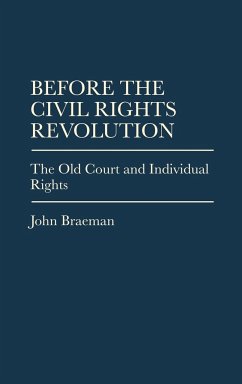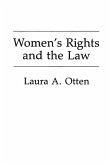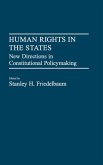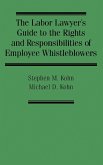There is a broad consensus that 1937 marked a turning point in the history of the Supreme Court. This is the first comprehensive treatment of the Court's decision-making in the civil liberties/civil rights sphere in the years preceding that watershed. Professor Braeman refutes the widely held assumption that the post-1937 justices were writing upon a largely blank slate in dealing with civil liberties/civil rights issues, arguing instead that much of what the Modern Court has done, when viewed in a long-term perspective, appears as incremental expansions of precedents laid down by the Old Court.
Hinweis: Dieser Artikel kann nur an eine deutsche Lieferadresse ausgeliefert werden.
Hinweis: Dieser Artikel kann nur an eine deutsche Lieferadresse ausgeliefert werden.








